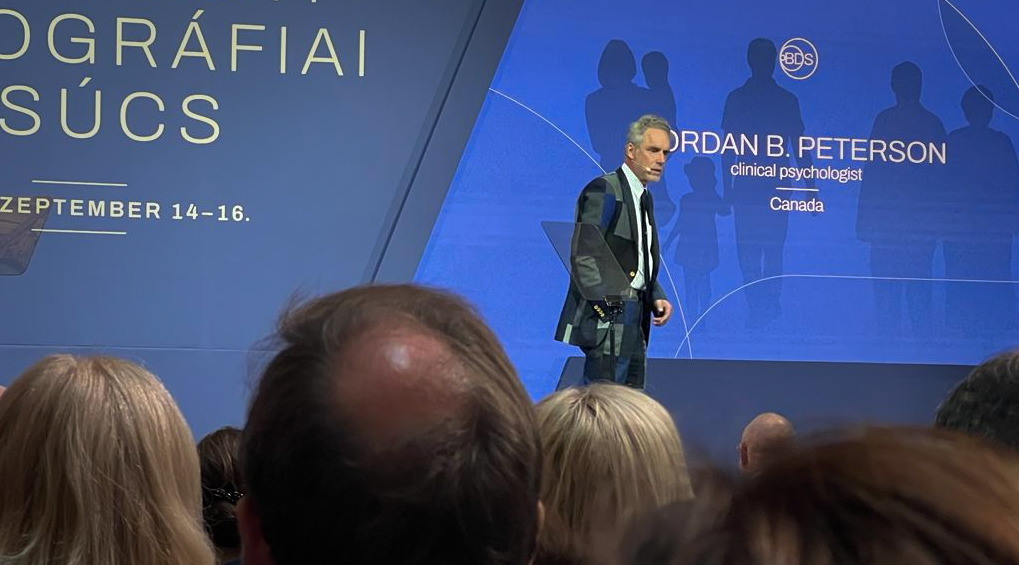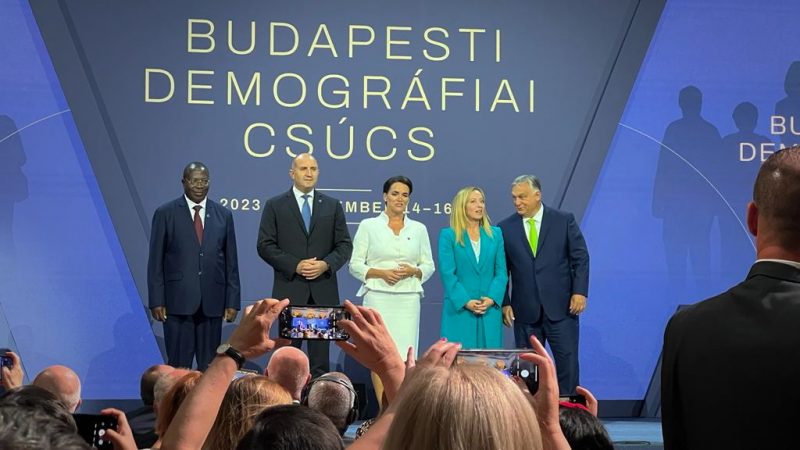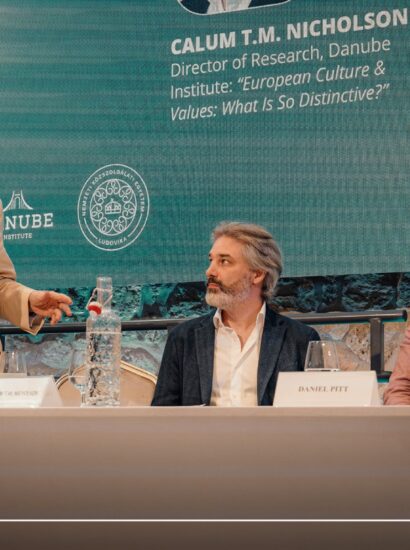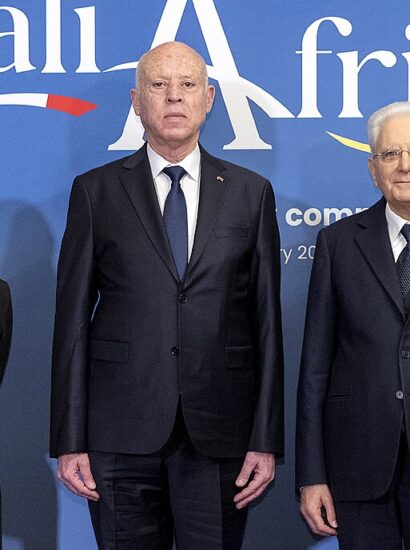Every two years since 2015, the Budapest Demographic Summit has been the forum where politicians, church leaders, experts, the representatives of science, the corporate sector and the media discuss the most timely and important issues affecting families.
Over the last two decades, the demographic crisis in the West has accelerated dramatically, in the face of widespread inaction by the vast majority of governments, with a few exceptions beyond Hungary, under the Orbán government, and Poland, under the Law and Justice party.
On the crisis and its solutions, the fifth Demographic Summit has just been held in Budapest, with the presence of around 60 heads of state and government, church leaders, opinion leaders, influencers and NGO leaders from four continents.
The event started with a cultural event of traditional Hungarian dances, showing the importance of culture and tradition for any country. After this, as has become traditional in other types of conservative political events, it was the turn of the representatives of the Christian and Jewish religions to say a few prayers before beginning the presentations.
Demography and Family
After the cultural and religious presentations, the first part of the conference was dedicated to the theme of the event: demography and the family. The keynote was delivered by Jordan Peterson, the clinical psychologist known worldwide for his great oratory skills and his many books, as well as for his “fight” against woke ideology.

Canadian criminal psychologist Jordan Peterson during his keynote speech at the Budapest Demographic Summit on September 14, 2023 (Photo by Sergio Velasco)
Peterson highlighted the social characteristic of humans, the importance of sociability as a key axis in humanity, in fact, he stated that even the most antisocial people, psychopaths, are punished with isolation in prisons.
With this example, it is understood that even the person who presumably has the least need to get together with people ends up being punished just the same, since human interaction is necessary. For this very reason, Peterson argues that a woke society oriented to the “I” is destined to failure and perpetual anxiety.
The Hungarian president followed Peterson. Katalin Novak emphasized how Hungarian society sees the importance of the family and the figure of the mother as the backbone of the Hungarian nation. In fact, for those who do not know, when signing any kind of document, the first thing they ask for is your mother’s name. She emphasized that “whoever has a child is ready to fight at any time so that her child can live in peace and freedom”. She also showed the progress made by Hungary since 2010 in family matters: “the number of marriages has doubled in ten years, and the number of abortions has halved. Divorces are fewer and fewer, the desire to have children has increased the most in Europe, there are more extended families and the standard of living has increased.”
Whoever has a child is ready to fight at any time so that her child can live in peace and freedom.
Rumen Radev, President of Bulgaria, said that “families have a responsibility to have children, educate them and turn them into exemplary citizens for our countries.” He also warned that this is not only a global, European responsibility, but also the responsibility of nations.
Giorgia Meloni, Prime Minister of Italy, began her speech by saying that the family and demographics were two of the big issues in Italy, and that they are of vital importance to her government.
Meloni emphasized that this is not just an economic issue, but a cultural issue.
She gave as an example the extreme case of wars, “after the Second World War, despite being reduced to ruins and finding itself in an extremely difficult situation, Italy experienced a phase of both major economic expansion and strong population growth. In 1964, more than a million children were born in Italy and there was a fertility rate of 2.7 children per woman”. Another of the most important points that the Italian Prime Minister touched on was how social networks and television have been accelerating the invisibilization of the natural family, “how much the social models we see in advertisements, in films and TV programmes and in the world of media in general have changed over the years: the typical image of a family with children has gradually faded, with communications geared towards single people being favored instead, showing citizens-consumers in their individual dimension – detached from the communities they belong to, starting with the first of the communities which is the family”.
Philip Mpango, vice president of Tanzania, called for national family policies to protect the institution of the family. “We need, more than ever, a global coalition for the well-being of the family,” he stated. He also said Africa needs assistance to contain the spillover effects of its demographic challenges.
Viktor Orban, Prime Minister of Hungary, stressed the importance of Meloni’s election victory in Italy, as well as the common understanding between Hungary and Italy that the future of Europe depends on strong families, as both governments recognize the natural family, that is, that a child has a father and a mother. Orbán also said that things given by nature and common sense cannot be changed by politicians who think they can change everything, giving the example that Soviet Hungary tried to change the course of rivers, comparing it to the nonsense ideas of the EU elites.
Orban outlined five key objectives of the Hungarian family policy: to encourage the birth rate, to assist in the acquisition of housing, to give priority to mothers in family policy, to promote family-friendliness throughout the country, and to ensure legal protection for families.
As in Novak’s speech, Orban also emphasized Hungary’s great figures, such as that 156,000 more children have been born, going from having a fertility rate of 1.23 in 2010, while the same figure for 2021 was 1.59. The Hungarian government’s challenge is to reach the fertility rate of 2.1.
“The attacks on the Hungarian government by the progressive world for our family-friendly policies, for our conservatism, for our patriotism, only make us stronger,” said Orban.
The Hungarian prime minister concluded by saying that the attacks on Hungary did not bother him. “The attacks on the Hungarian government by the progressive world for our family-friendly policies, for our conservatism, for our patriotism, only make us stronger. It’s not going to change. If anyone thinks that by putting pressure on us they are going to change anything, they don’t know Hungarians,” Orban noted.
Sahiba Qafarova, President of the National Assembly of Azerbaijan, explained the importance of the natural family and its values in her country, “the family values are one of the core reasons why representatives of diverse ethnic and religious groups have lived in dignity, peace and friendship in Azerbaijan for centuries”.
Zeljka Cvijanovic, member of the Presidency of Bosnia and Herzegovina, spoke about the importance of understanding how the family has to be defended in current times and knowing how to face the challenges of today. She also said that in her country family will always continue to be understood as a natural family and not as in countries with a strong woke ideology. “A strong family, whose foundation is marriage as a union of a man and a woman and not any variations on the theme, is the foundation of a successful society.”
The panel “War and Peace: Aspects of Security from the Perspective of Families”, was moderated by Dr. Gladden Pappin, President of the Hungarian Institute of International Affairs, and included Christiaan Alting von Geusau, President of the International Catholic Legislators Network, security policy expert Robert C. Castel, and Kristóf Szalay-Bobrovniczky, the Hungarian Minister of Defence. All agreed that war is a factor of immeasurable damage, not only for human life itself, but also for families, since in a war situation families are broken, not only by death, but also by flight, because parents, older siblings, adult children have to stay on the front lines fighting, in addition to the tension caused by not knowing what is going to happen. Therefore, they all concluded that the best measure for the families is to achieve peace, for the reestablishment of normal and daily life.
Demographic Changes Affect All Nations in a Positive or Negative Direction
The most important panel of the second day was the so-called “panel discussion of ministers”, which consisted of 10 speakers and a moderator.
It was a long panel, with several interesting and important insights to highlight.
Minister of Family Welfare of Serbia Darija Kisic, stated that demographic changes are the most likely to affect the future of all nations whether it is a decrease in the number of inhabitants, a decrease in the birth rate, an aging population or an increase in the birth rate, overpopulation and various socio-economic effects that constitute major problems.
Minister for the Family Women, Children and the Elderly in Tunisia Belhaj Moussa discussed ways to boost cooperation and consolidate partnership in areas related to family, women, children and the elderly. Minister of Information and Social Development of Kazakhstan Balayeva Aida highlighted the cultural importance that the country has and the awareness of the moral importance of having a family and consequently having children, “We have a young population, with an average age of 32 years old. The young people make up nearly 30 percent of the total population.”
Gaad Sad, a Canadian-Liabnese evolutionary psychologist, was another of the most anticipated speakers at the event. Sad explained the importance of parents being present both in the early childhood and adolescence of the child, as it can not only mental and emotional benefit, but also has biological consequences in children. For example, if a father is more present in the childhood of a daughter, her menstruation usually starts later than if he is not present, as it can commence due to insecurity.
“Patterns are not determined by patriarchy, but by biology,” affirmed Sad.
Nick Vujicic, Australian preacher and motivational speaker, was another of the great acclaimed speakers at this event. Vujicic spoke about the importance of Christianity in his case. He explained his personal case, since as he relates, many doctors told his parents that his chances of survival and having a normal life were extremely difficult, but his parents said yes, as he explains, with a “Christian love”. He spoke of being saved by Christianity and his family being traditionally Christian, as that made his parents make the final decision to give him the best life.
For this reason, Vujicic explained that Christianity has to be in our society, in our countries and that it is of utmost importance because it can be a turning point in a person’s life, “if we live in a country where God is not looked at, we end up in a terrible place”, Vujicic said.
Same Problems, Different Responses, Crucial Exchange of Ways of Coping
People from almost all continents gave the audience the vision of how different societies can defend the same thing: the natural family and the need to address the demographic winter that haunts us. Also, you can discover people who were possibly unknown before and from this conference you can philosophically nourish yourself from their ideas to have a bigger vision about the vision of the natural family understood by other mentalities.
The emphasis was not only on family policymakers, who obviously are one of the pillars of the demographic challenge, but it was really useful to have people from the world of psychology, to know how it really affects the family, both biologically and socially. In addition, the question of religion is also important.
In Western societies where there is more and more individualization and the community in our spaces is less and less, there has to be that cohesive figure that drives social relations and that vindicates the family as the main axis of our lives.
Also present was the most human part, that sometimes with so much politics we forget the meaning of life, having a family, children and being happy. There were several videos of elderly Hungarians talking about how happy they have been in this life for having had children, how it has given them so much and how it changes your life to have a being that you would give your life for and that is more important than yourself.
In conclusion, many possible solutions to the demographic problem were given, there was debate, exchange of ideas and most importantly, always with respect. Budapest has become the epicenter of conservative events par excellence and that is a very good sign, that Hungary, a country with only 10 million inhabitants manages to attract such important personalities and has the focus of being the laboratory of conservative ideas is ideal and has become an example that many countries should study and follow.








[…] halt the demographic decline, we would launch the National Plan for Family Protection for the next two decades, we would […]